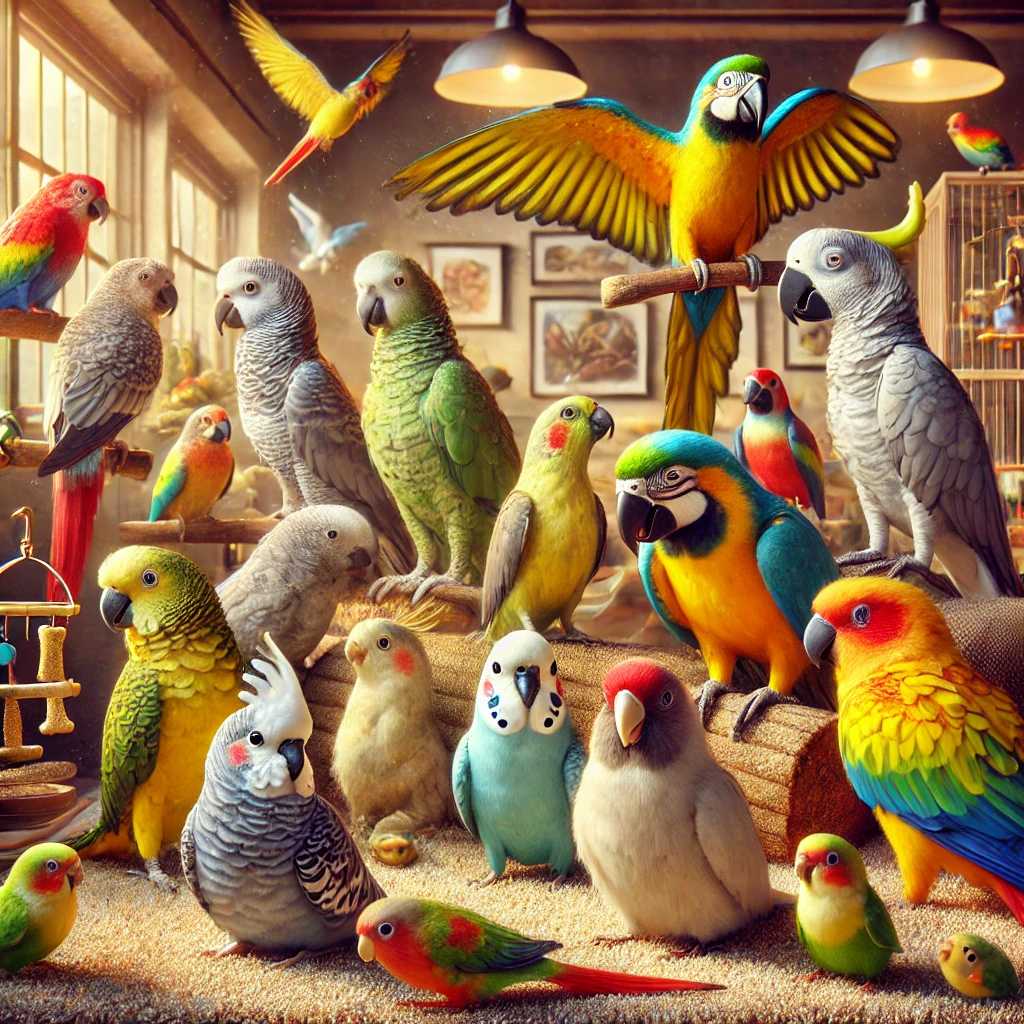Birds are captivating, colorful companions that bring unique joy to many American homes. If you’re considering a pet bird, it’s important to choose a species that fits your lifestyle and preferences. Let’s dive into the ten most popular pet bird species in the United States, discussing each bird’s charm, care requirements, and personality traits.
1. Parakeet (Budgerigar)
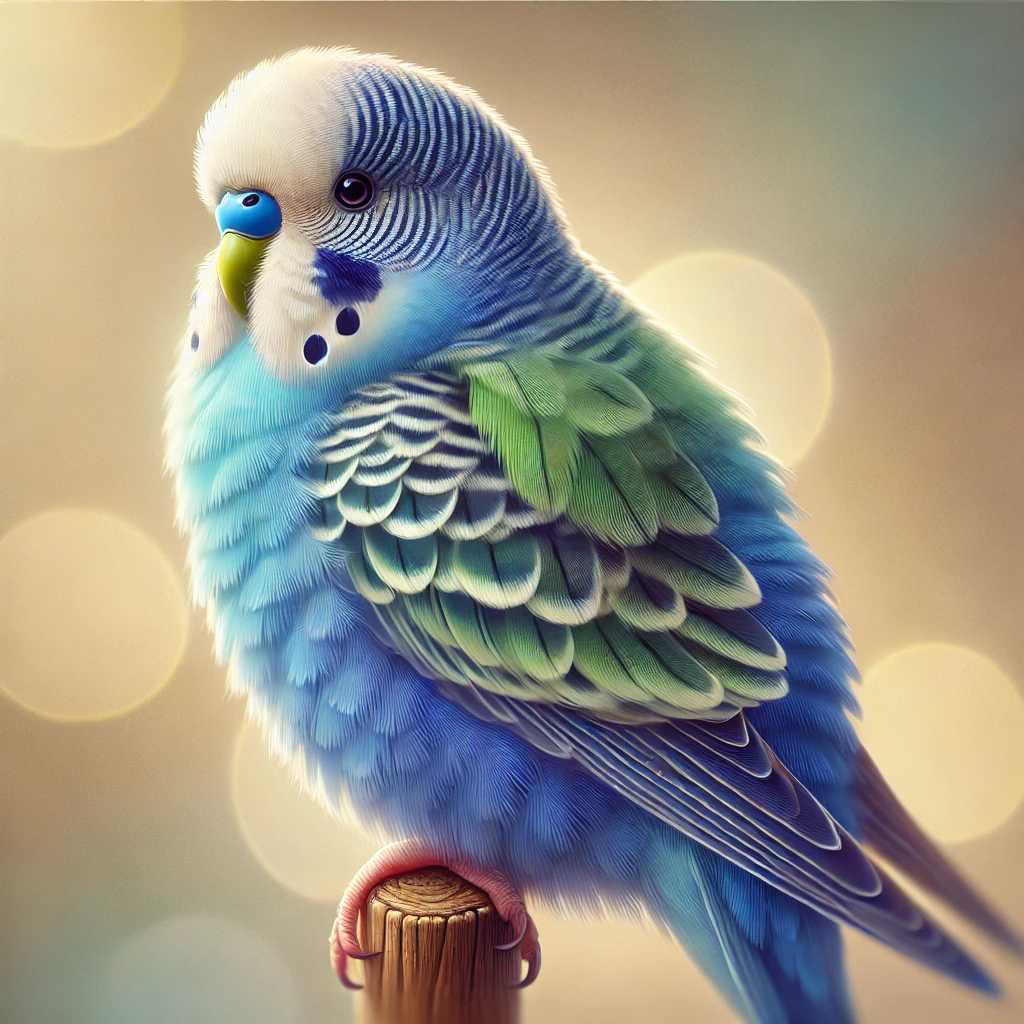
• Overview: Parakeets, also known as budgies, are some of the most popular pet birds in the U.S. With vibrant colors and playful personalities, they’re ideal for beginners and experienced bird owners alike.
• Personality: Parakeets are highly social and can even learn to mimic words or sounds with consistent training.
• Care: Parakeets need a balanced diet of seeds, fruits, and vegetables. They thrive with daily interaction, so a few minutes of attention each day keeps them happy.
• Lifespan: 5-10 years
• Pros: Small size, easy to care for, and affordable.
• Cons: Prone to boredom without mental stimulation.
2. Cockatiel
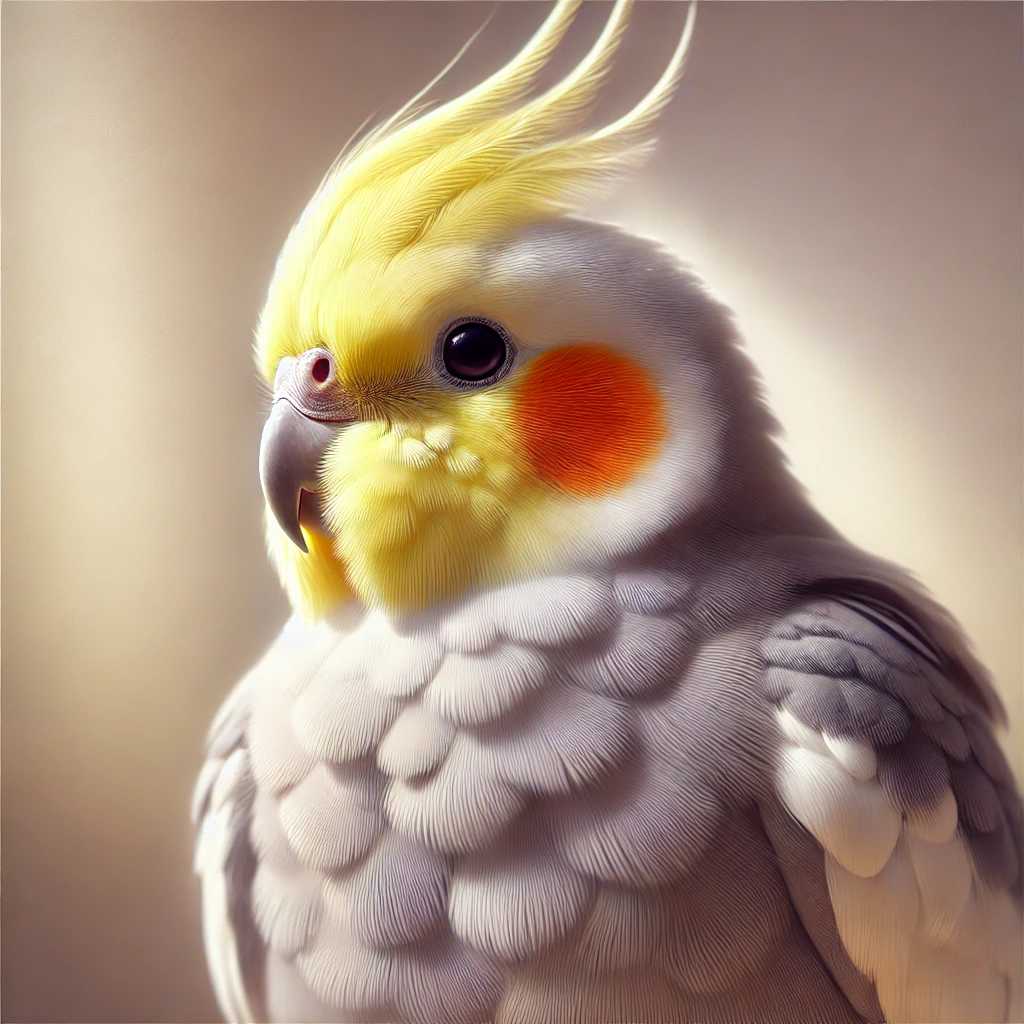
• Overview: Known for their distinctive cheek patches, cockatiels are affectionate and enjoy interacting with humans. These Australian natives are well-loved for their whistling abilities.
• Personality: Gentle and affectionate, cockatiels are excellent for families. They enjoy perching on shoulders and may learn to mimic sounds.
• Care: Cockatiels need a varied diet that includes seeds, pellets, and fresh vegetables. They also appreciate daily out-of-cage time to exercise.
• Lifespan: 10-15 years
• Pros: Friendly, low-maintenance, and easy to tame.
• Cons: Messy eaters; they require a lot of cleaning around their cage.
3. African Grey Parrot
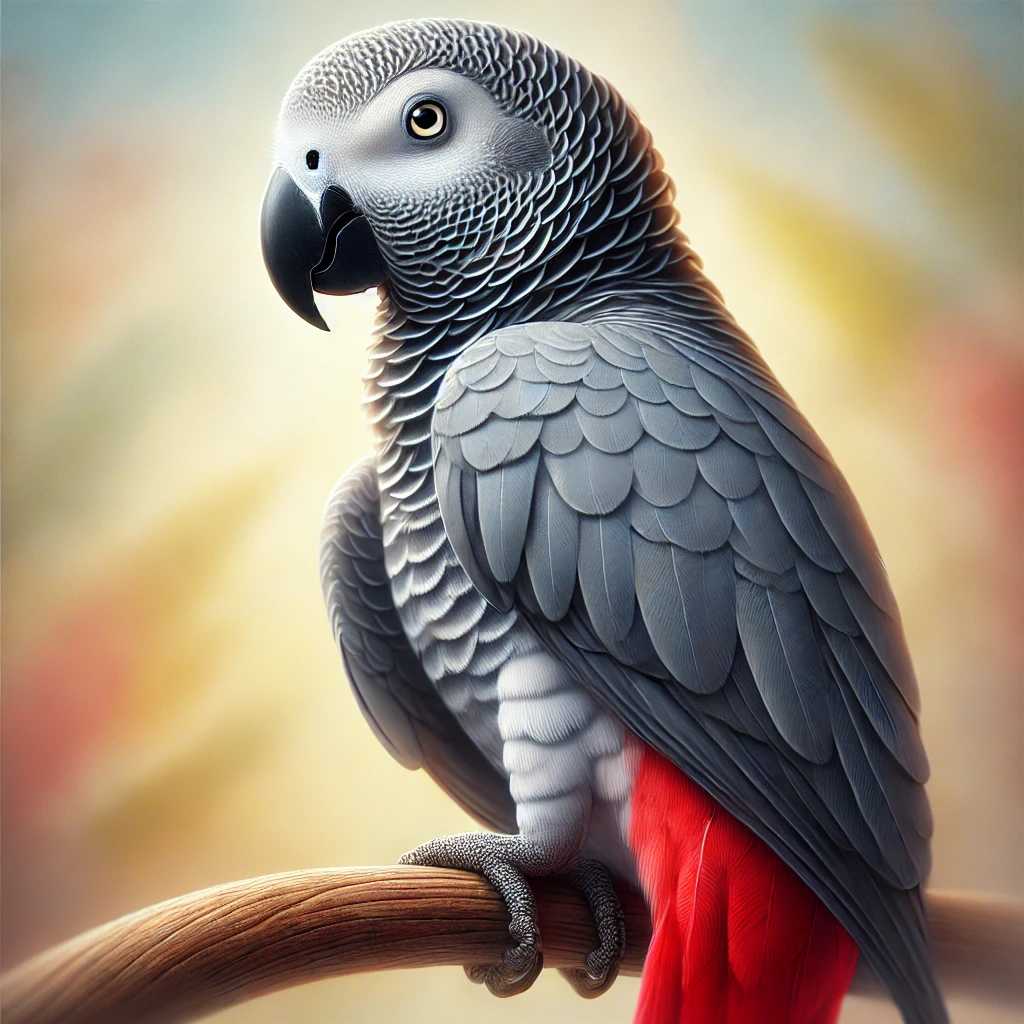
• Overview: African Grey Parrots are famous for their intelligence and ability to learn extensive vocabularies. Known as the “Einsteins” of the bird world, these parrots are incredibly engaging.
• Personality: Highly intelligent and sensitive, they require mental stimulation and attention. They form strong bonds with their owners and can even recognize human emotions.
• Care: A diet rich in fruits, vegetables, and specially formulated pellets is essential. African Greys need mental enrichment through toys, puzzles, and training exercises.
• Lifespan: 40-60 years
• Pros: Highly intelligent, great mimics, and extremely social.
• Cons: High maintenance, prone to stress and feather plucking if neglected.
4. Canary
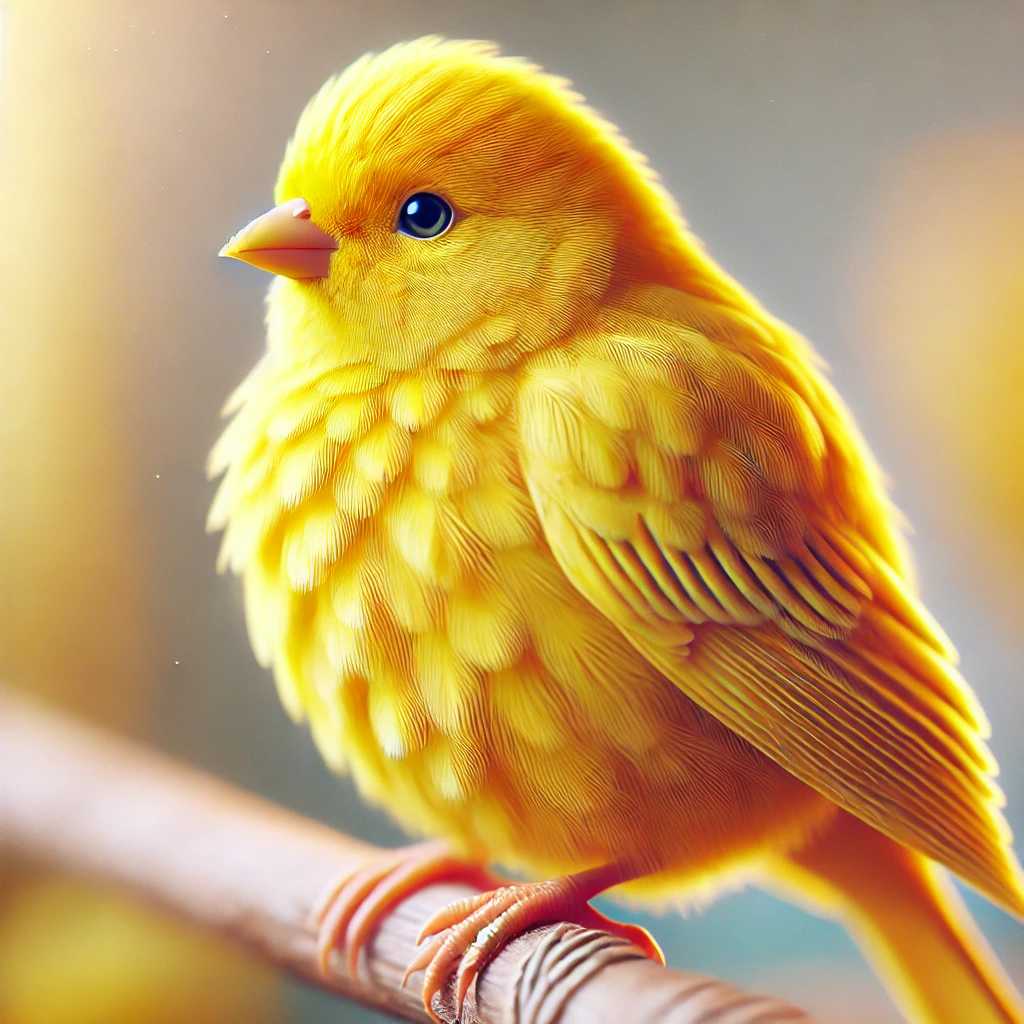
• Overview: Known for their beautiful singing, canaries are small birds that don’t require much handling. They’re an excellent choice for those who prefer to watch and listen rather than interact closely.
• Personality: Canaries are independent but sing beautifully, especially males. They’re less social with humans but enjoy the company of other birds.
• Care: A canary’s diet consists of seeds, fresh fruits, and vegetables. Their cage should be spacious enough for them to fly around.
• Lifespan: 10-15 years
• Pros: Low maintenance, quiet except for singing, and ideal for apartments.
• Cons: Not very interactive; they don’t enjoy being handled.
5. Lovebird
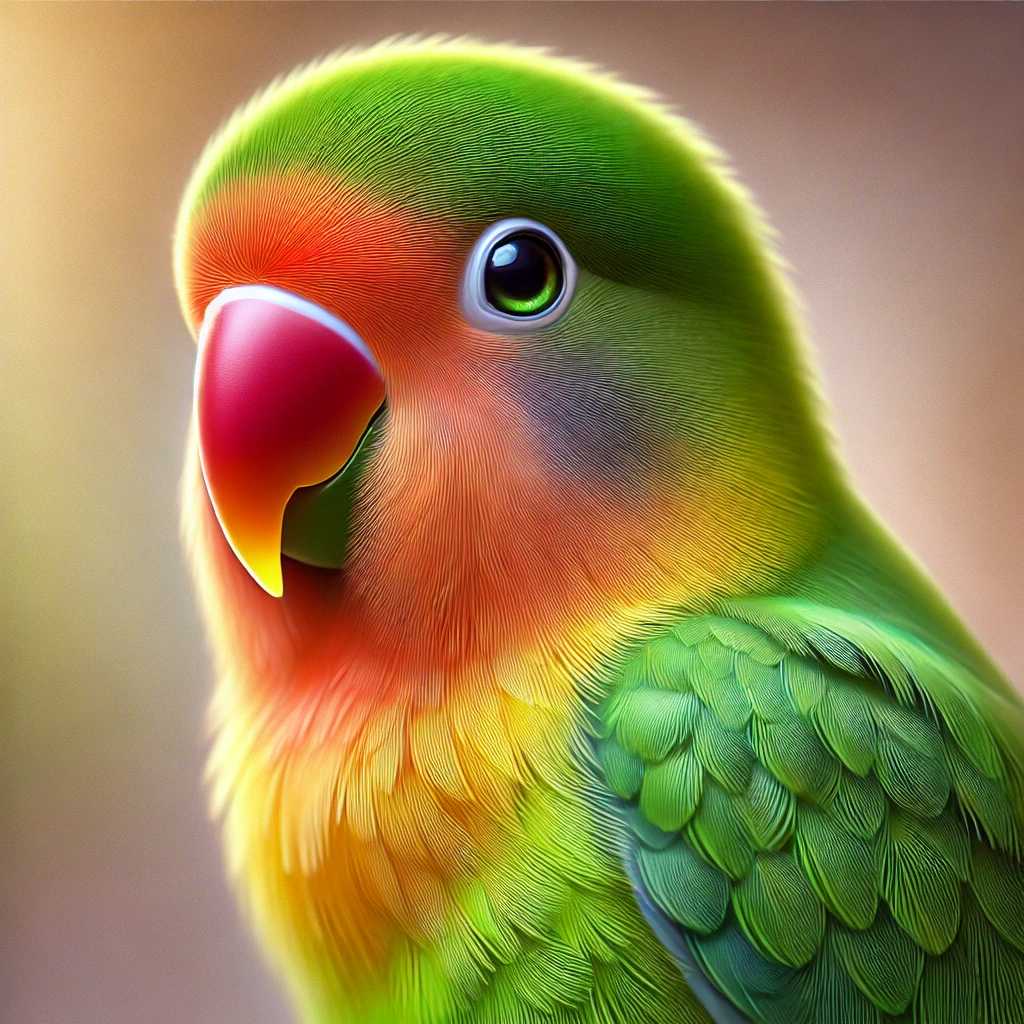
• Overview: These small parrots are known for forming deep bonds with their partners or owners. Lovebirds are affectionate, active, and full of personality.
• Personality: Lovebirds are curious and playful, often engaging in antics. They form close attachments, making them ideal for bird enthusiasts who want an interactive pet.
• Care: Lovebirds require a diet of pellets, seeds, and fresh vegetables. They need plenty of toys and daily social interaction to prevent boredom.
• Lifespan: 10-20 years
• Pros: Affectionate, intelligent, and lively.
• Cons: Prone to loneliness and boredom without proper interaction.
6. Macaw

• Overview: Macaws are the vibrant, large parrots known for their powerful voices and striking colors. They are often considered a symbol of the tropics.
• Personality: Macaws are social, outgoing, and can learn an impressive vocabulary. They require a significant commitment of time and energy, as they are demanding pets.
• Care: A diet of nuts, seeds, fruits, and specialized pellets is essential. Macaws need a spacious cage, regular mental enrichment, and social interaction.
• Lifespan: 40-50 years
• Pros: Highly social, colorful, and trainable.
• Cons: Loud, high-maintenance, and require a large living space.
7. Conure
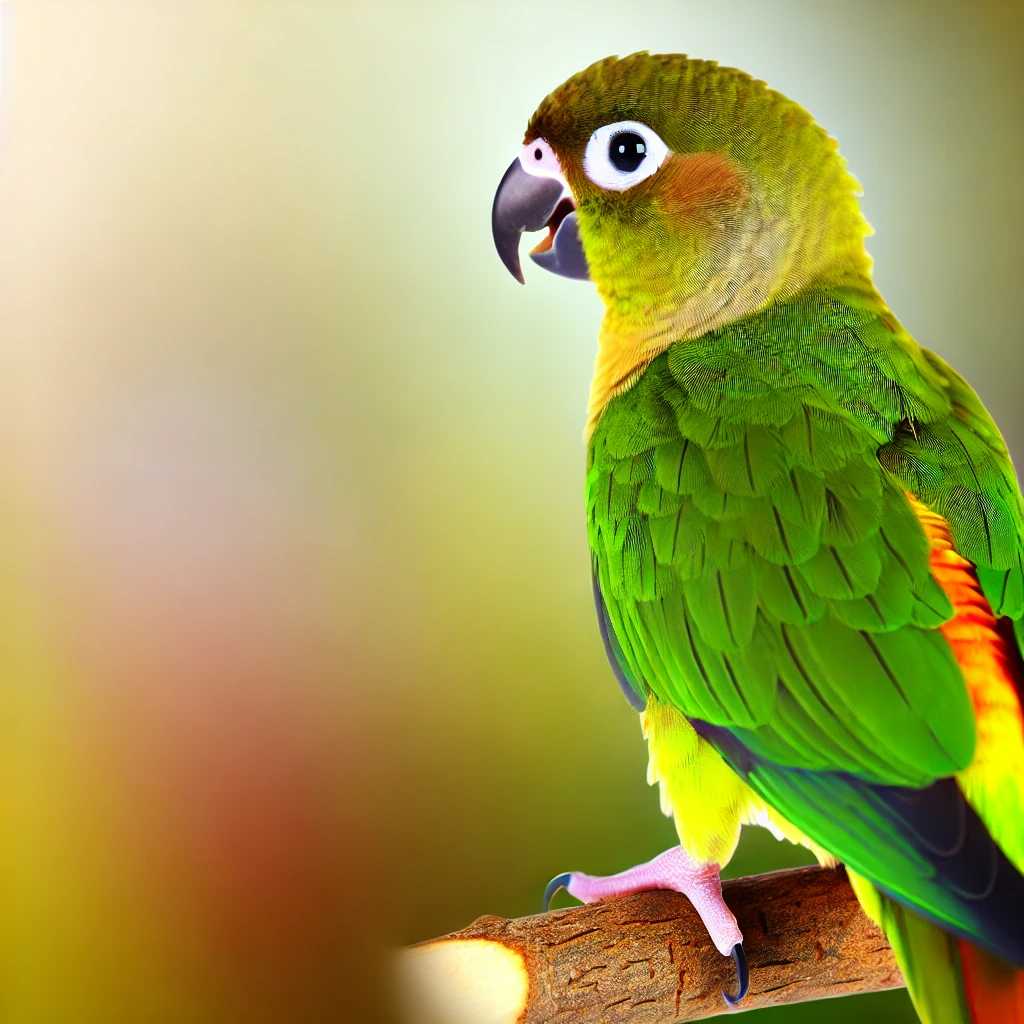
• Overview: Conures are medium-sized parrots known for their playful nature and social personalities. They come in a variety of colors, with species such as the Sun Conure being especially popular.
• Personality: Conures are affectionate and love to spend time with their owners. They are vocal and can sometimes be quite loud.
• Care: Conures need a diet of fruits, vegetables, seeds, and pellets. They require a lot of attention and toys to stay entertained.
• Lifespan: 20-30 years
• Pros: Fun-loving, social, and colorful.
• Cons: Loud and can become nippy if not properly trained.
8. Amazon Parrot
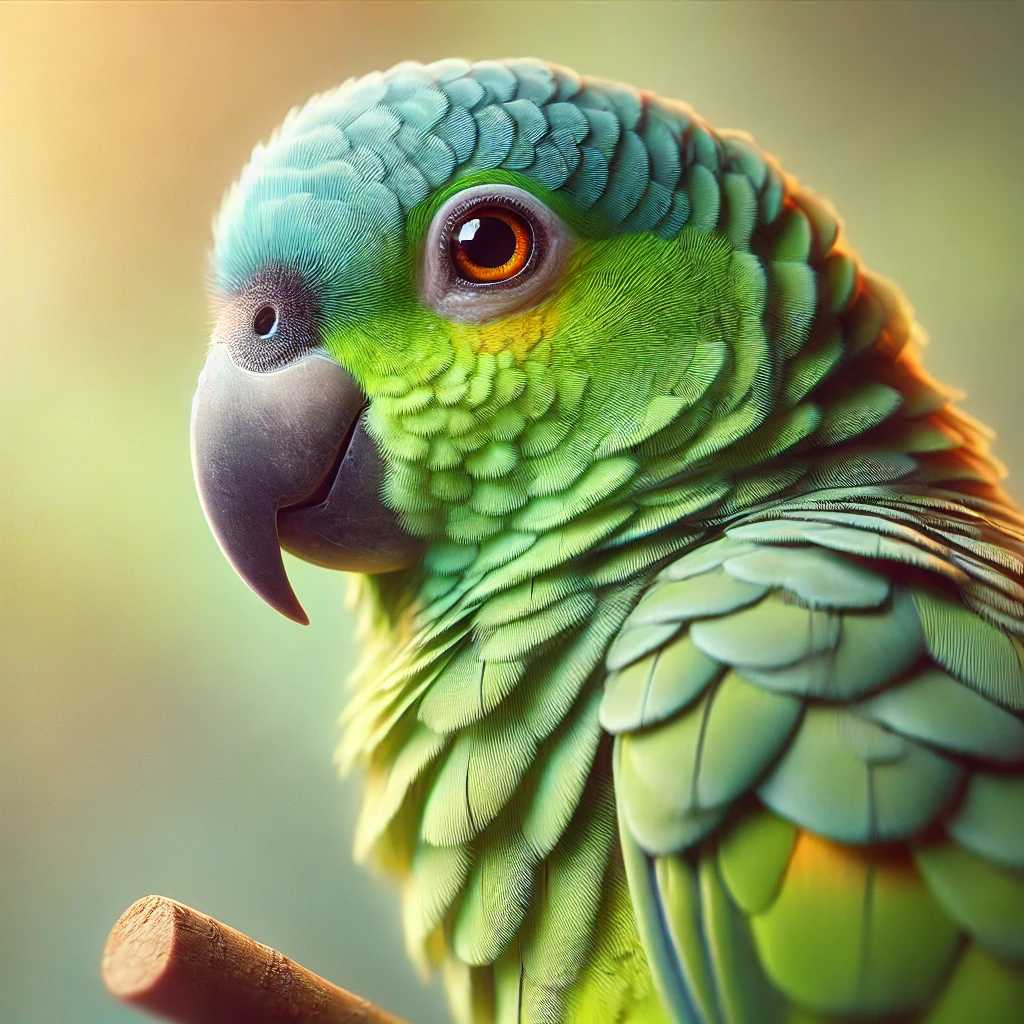
• Overview: Amazon parrots are medium to large-sized parrots with a striking green coloration. They are very social and enjoy performing and mimicking sounds.
• Personality: These parrots are intelligent and love to play. They are known for their charming personalities and ability to mimic human speech and sounds well.
• Care: Amazon parrots require a varied diet of fruits, vegetables, and quality pellets. They need a lot of social interaction and physical activity.
• Lifespan: 40-50 years
• Pros: Friendly, intelligent, and great talkers.
• Cons: Require a significant amount of interaction, can become aggressive if neglected.
9. Finch
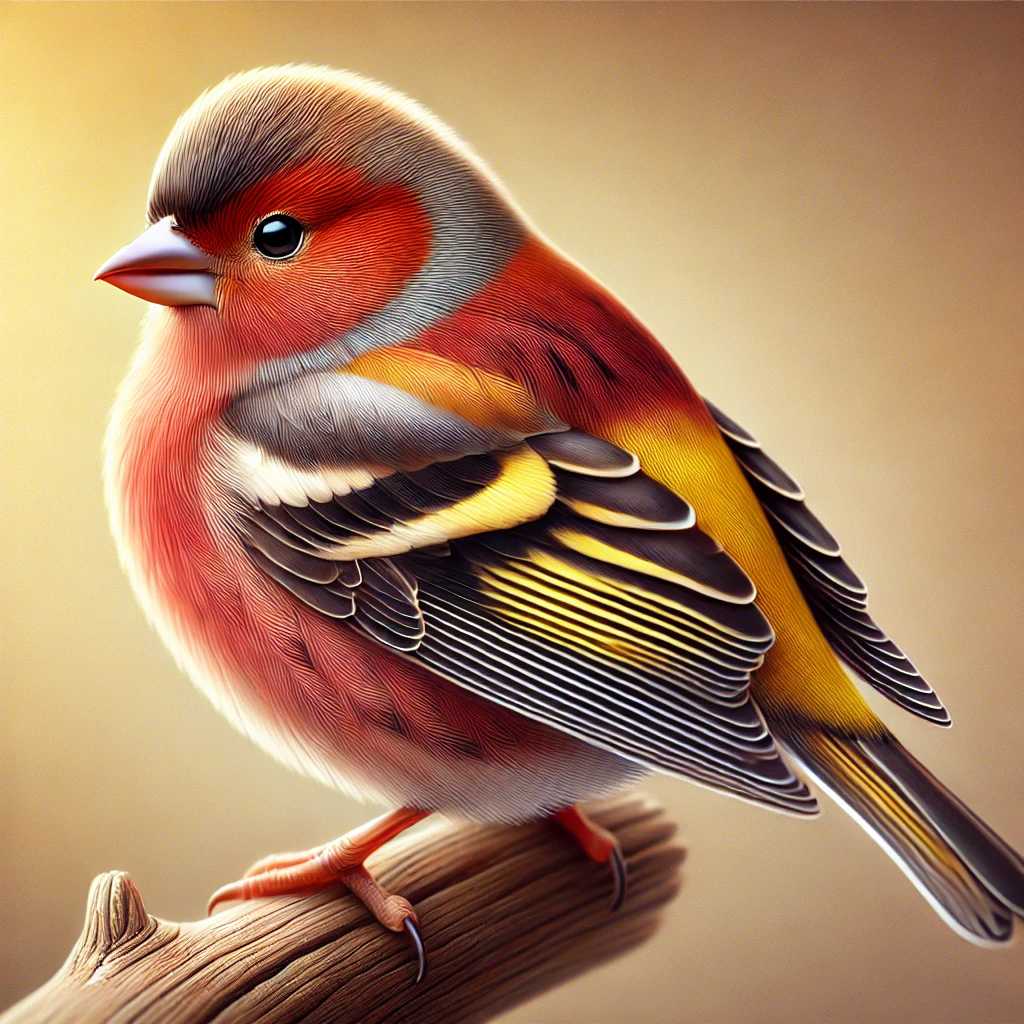
• Overview: Finches are tiny, colorful birds that thrive in pairs or small flocks. They’re perfect for bird enthusiasts who enjoy observing rather than interacting directly.
• Personality: Finches are lively and enjoy socializing with other finches. They are not typically hand-tame but are delightful to watch.
• Care: Finches need a diet of seeds, fresh greens, and egg food for extra protein. Their cage should allow for flight and contain perches and toys for enrichment.
• Lifespan: 5-10 years
• Pros: Low maintenance, quiet, and easy to care for in groups.
• Cons: Not suitable for handling or close interaction.
10. Eclectus Parrot
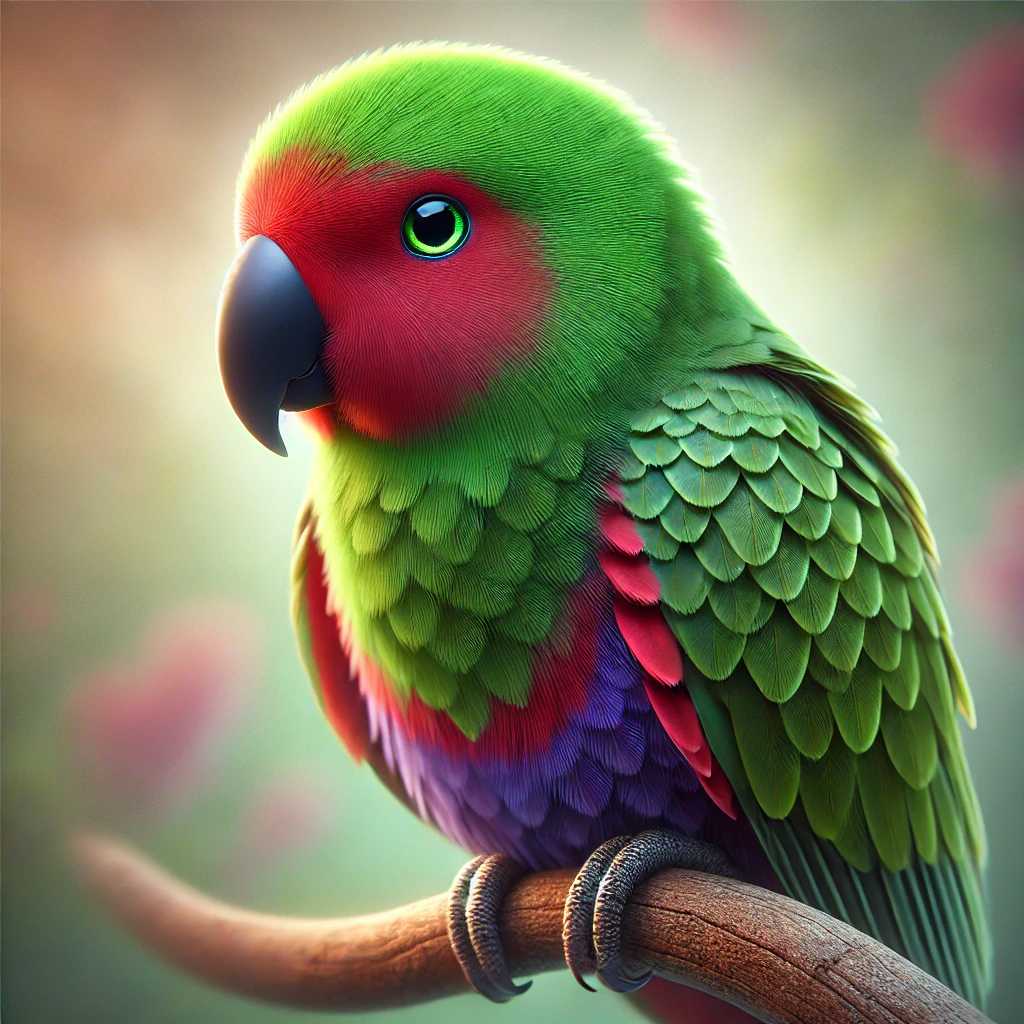
• Overview: Known for their unique sexual dimorphism, Eclectus parrots are vibrant parrots where males are green and females are red and purple.
• Personality: Eclectus parrots are gentle and enjoy social interaction but can be sensitive to stress. They are intelligent, and with proper training, they can learn to mimic human speech.
• Care: Eclectus parrots need a diet rich in fresh fruits and vegetables. They require a spacious cage and mental stimulation.
• Lifespan: 30-50 years
• Pros: Intelligent, gentle, and visually stunning.
• Cons: Sensitive to dietary imbalances and stress.
Choosing the Right Bird for You
Selecting a pet bird depends on several factors: available time, space, level of experience, and lifestyle. Here are some tips to help guide your choice:
- Lifestyle and Commitment: Birds like macaws and African Greys require more interaction and mental stimulation, making them a better choice for experienced or full-time pet owners.
- Space: Birds like finches and canaries are smaller and require less space, while macaws and Amazon parrots need larger cages and play areas.
- Interaction Level: If you prefer a hands-on pet, consider a conure, lovebird, or cockatiel. For those interested in observing rather than interacting, finches or canaries may be ideal.
- Noise Level: Parrots, particularly macaws and conures, can be loud. If noise is a concern, consider quieter species like canaries and finches.
- Longevity: Birds have varying lifespans. Some parrots can live for 50 years or more, making them a lifelong commitment, while smaller birds like finches have shorter lifespans.
Owning a bird can be incredibly rewarding, as these feathered companions bring color, joy, and lively chatter into your home. Whether you’re looking for a bird that talks, sings, or simply provides a beautiful presence, this list of the top 10 most popular pet birds in the U.S. offers options for everyone. By choosing the right bird that matches your lifestyle and preferences, you can ensure a happy, enriching life for both you and your feathered friend.

